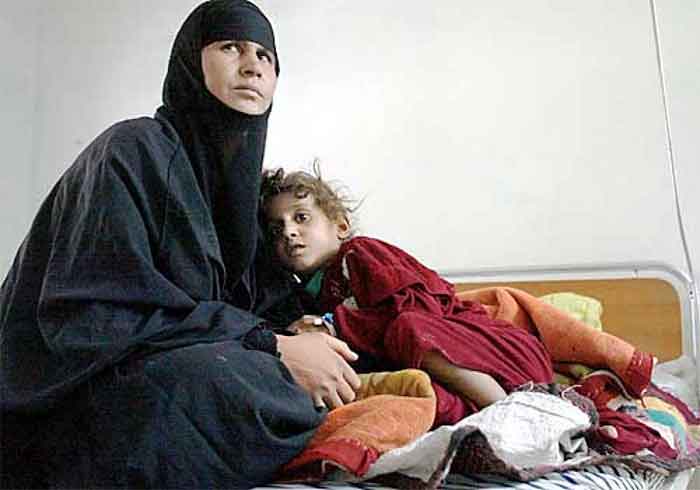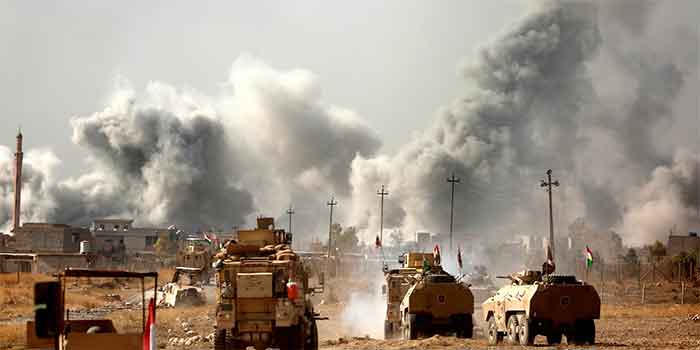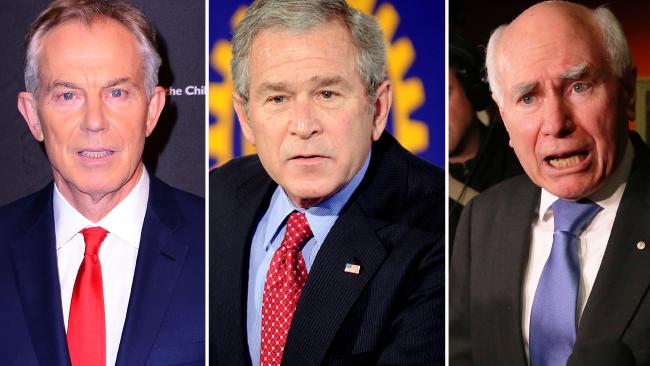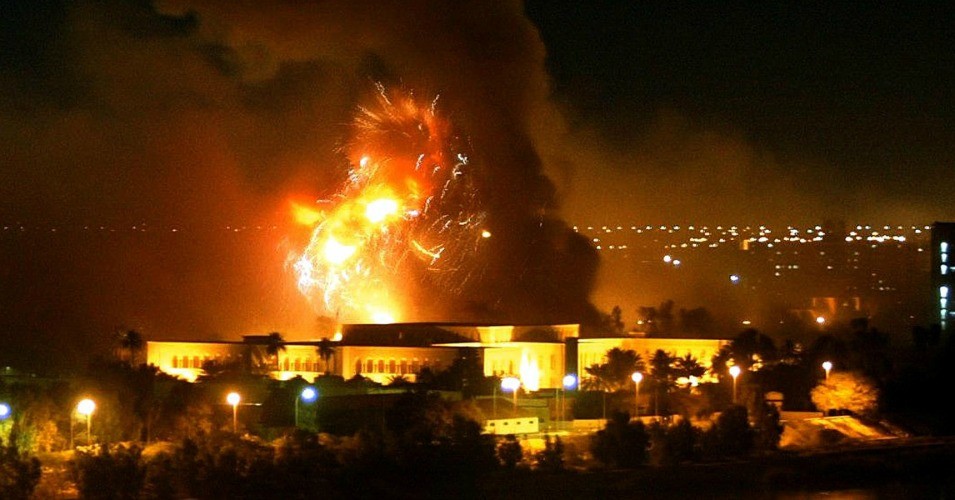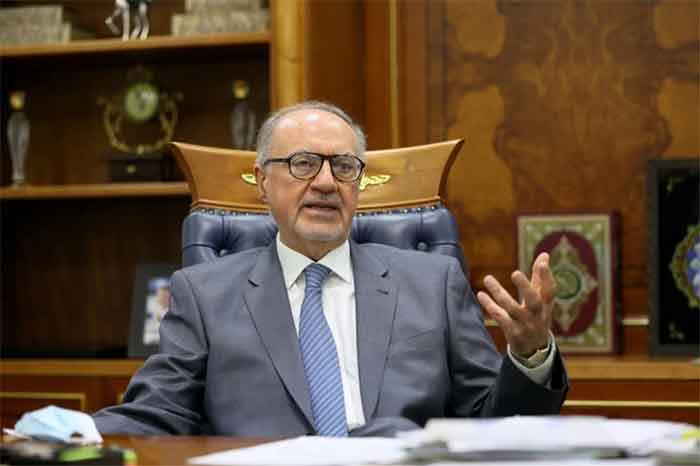
Iraqi finance minister Ali Allawi resigned during a cabinet meeting on Tuesday to protest the political turmoil in the country.
Iraq’s political impasse, now in its 10th month, is the longest in the country since the 2003 U.S.-led invasion reset the political order.
Nearly 10 months on from the last elections, Iraq still has no government, new prime minister or new president, due to repeated squabbles between factions over forming a coalition.
Media reports said:
Iraq’s finance minister resigned on Tuesday, two government officials said, over the country’s worst political crisis in years involving an influential Shiite cleric and his Iran-aligned rivals.
The officials, who spoke on condition of anonymity in line with regulations, said finance minister Ali Allawi resigned during a Cabinet meeting on Tuesday to protest the political conditions. They said Oil Minister Ihsan Abdul-Jabbar will become acting finance minister.
Allawi’s decision came weeks after members of influential Shiite cleric Muqtada al-Sadr’s parliamentary bloc resigned from parliament and his supporters stormed the parliament building in Baghdad. Al-Sadr later demanded that parliament be dissolved and early elections held.
Al-Sadr won the largest share of seats in the election last October but failed to form a majority government that excluded his Iran-aligned rivals.
Al-Sadr’s political rivals in the Coordination Framework, an alliance of Iran-backed parties, said earlier that parliament would have to convene to dissolve itself. They called the al-Sadr supporters’ storming of parliament a “coup” and have held demonstrations in support of the government.
Mustafa al-Kadhimi’s government is “shackled by the power struggle” in the country, resigned finance minister of Iraq Ali Abdul-Amir Allawi said in his resignation letter.
“The resignation letter of the finance minister demonstrated a huge respect for the achievements of the government,” spokesperson to al-Kadhimi’s government, Culture Minister Hassan Nadhim, said in a press conference following an ordinary session on Tuesday, “it ascribed the government’s measures and achievements as exceptional.”
“The letter said that the cabinet is shackled by the power struggle between the political forces in the country,” Nadhim added, “it highlighted the rapid growth rate of Iraq.”
“The government is not a part of any conflict. It has a desire for actual work under the rule of law. But some parties are diverging the problems toward it.”
Judiciary Dismisses Al-Sadr’s Demand To Dissolve Parliament
Iraq’s judiciary said Sunday it lacks the authority to dissolve parliament as demanded by Iraqi Shia cleric Muqtada al-Sadr, who is engaged in an escalating standoff with political rivals.
Followers of al-Sadr, in defiance of his Shia rivals of the pro-Iran Coordination Framework, have been staging a sit-in protest at Iraq’s parliament.
In the latest twist to the political turmoil, the firebrand cleric has urged the judiciary to dissolve parliament by the end of this week to pave the way for new legislative elections.
But the judiciary replied that “the Supreme Judicial Council has no jurisdiction to dissolve parliament,” citing “the principle of a separation of powers.”
Under the constitution, parliament can only be dissolved by an absolute majority vote in the house, following a request by one-third of deputies or by the prime minister with the approval of the president.
In the latest turmoil to strike the oil-rich but war-scarred nation, al-Sadr has called for “early democratic elections after dissolution of parliament.”
The Supreme Council said it agreed with al-Sadr’s criticism of the system’s “failure to elect a president of the republic, a prime minister and the absence of a government formed within the constitutional timeframe.”
“This is an unacceptable situation that must be remedied,” it said.
The Coordination Framework opponents of al-Sadr launched their own Baghdad sit-in on Friday, nearly two weeks after his supporters stormed parliament and began an open-ended protest, first inside, then outside the legislature.
The opposing encampments are the latest turn in a standoff which has so far remained peaceful.
On Twitter, a close associate of al-Sadr, Saleh Mohamed al-Iraqi, said it was time to show “which of the two sides has the most support” among the Iraqi people.
He called on al-Sadr’s supporters across the country to rally in Baghdad for a “million-man demonstration,” without giving a date.
Al-Sadr’s camp launched the sit-in after the Coordination Framework nominated a candidate they saw as unacceptable for prime minister.
The cleric’s bloc emerged from the October elections as parliament’s biggest, but still far short of a majority.
In June, 73 of his lawmakers quit in an aborted bid to break the months-long political logjam.
PM calls on political forces for national dialogue
The Iraqi Prime Minister, Mustafa Al-Kadhimi, called on leaders of the political forces on Tuesday to meet at the government headquarters tomorrow to start a national dialogue in order to solve the political impasse in the country, according to a press statement issued by the Prime Minister press office.
“For the shared national responsibility that unites Iraqis on the principle of preserving Iraq’s unity, security, and stability, I invite the brothers, the leaders of the national political forces to a national meeting at the Government Palace tomorrow, Wednesday; to start a profound national dialogue and deliberation; to find solutions to the current political crisis and the current political deadlock based on the constitution and guided by the supreme national interest, and in a manner that contributes to calming the ongoing escalation and creating an appropriate environment for political and constitutional solutions to achieve the aspirations of our people,” Al-Kadhimi said in his statement.
“I call on all national parties to stop the popular and media escalation and to give enough room to moderate proposals to take their place in the national debate,” Al-Kadhimi added.
Al-Sadr backtracks on call for huge protests
Al-Sadr’s announcement came amid behind the scenes talks aimed at steering Iraq out of crisis, with the country’s two branches of Shia Islam jockeying for supremacy.
Iraq’s firebrand Shia cleric Muqtada al-Sadr backtracked on Tuesday after earlier urging his supporters to join a massive rally as a standoff with his political rivals appeared to be getting worse.
The populist cleric’s announcement came amid behind the scenes talks aimed at steering Iraq out of crisis, with the country’s two branches of Shia Islam jockeying for supremacy.
Sadr wants parliament dissolved to pave the way for new legislative elections, but his rivals the pro-Iran Coordination Framework want to set conditions and are demanding a transitional government before new polls.
The cleric’s bloc emerged from last October’s elections as parliament’s biggest, but still far short of a majority.
Sadr, whose supporters have been staging a sit-in protest outside parliament in Baghdad’s high security Green Zone for more than two weeks, had called for a “million-man demonstration” in the capital on Saturday.
But on Tuesday he announced on Twitter “the indefinite postponement of Saturday’s protest”.
“If you had been betting on a civil war, I am betting on preserving social peace. The blood of Iraqis is more precious than anything else,” Sadr said.
Late on Monday, a committee organizing demonstrations in support of the Coordination Framework also announced new gatherings, but without setting a date.
The Coordination Framework launched own Baghdad sit-in on Friday, camping out on an avenue in the capital.
The Coordination Framework comprises former paramilitaries of the Tehran-backed Hashed al-Shaabi network and the party of former premier Nouri al-Maliki, a longtime Sadr foe.
So far the rival Shia protests have been peaceful, with attempts at mediation ongoing.
Hadi al-Ameri, leader of a Hashed faction, has also called for calm and for dialogue. He has had a series of meetings with political leaders including allies of Sadr.
Conflict And Corruption
Iraq has been ravaged by decades of conflict and endemic corruption.
It is blighted by ailing infrastructure, power cuts and crumbling public services, and now also faces water shortages as drought ravages swathes of the country.
Despite its oil wealth, many Iraqis are mired in poverty, and some 35 percent of young people are unemployed, according to the UN.


